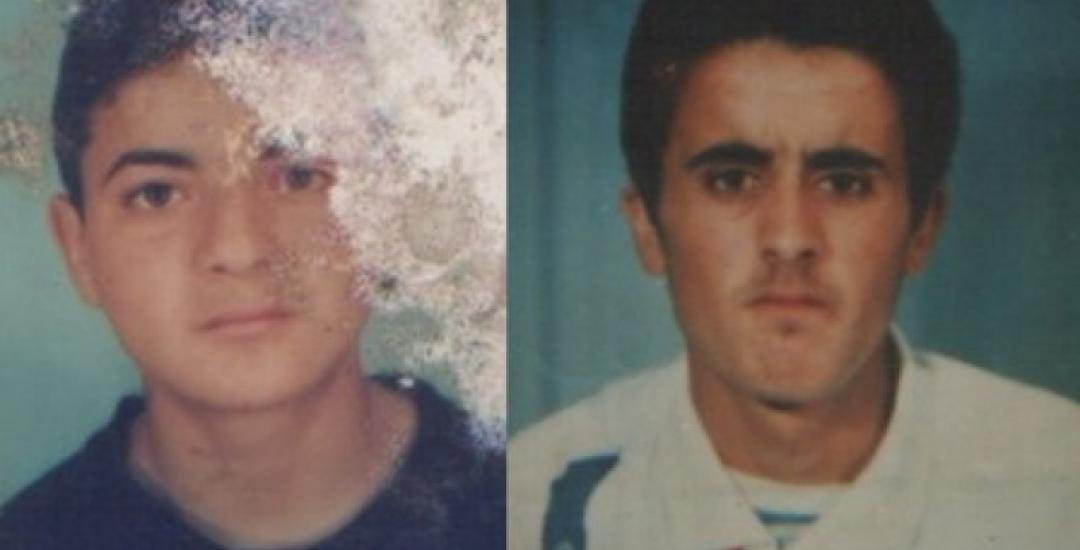
During its 111th session, the United Nations Human Rights Committee (HRC) has established the Algerian authorities' responsibility in the murder of the FEDSI brothers on 19 April 1997 in the village of Tellata near Taher in the province of Jijel. The principal perpatrator of their summary execution is none other than the head of the Daira (district) of Taher, Fourar Meheni, accompanied by the head of the local police (Dark al Watani) and the Police Commissioner of Taher.
Summary executions of the FEDSI brothers
Messaoud Nasreddine Fedsi, then aged respectively 20 and 24, were arrested in the early morning of 19 April 1997 by police officers accompanied by gendarmes and local militia members.
According to testimonies reported by bystanders, amongst which the victims' father, the security officers visited the family home at 6am and arrested Nasreddine FEDSI. They later headed to a cafe at the centre of the village of Tellata, where they arrested his brother Messaoud.
The two victims' father, Khalifa FEDSI had been arrested by officers driving a vehicle of the Taher's Daïra as he had just left his home early that morning to go to work. He was interrogated about his two sons before being released on the road. Alarmed, he returned to their family home immediately only to witness the arrest of his son, Nasreddine.
According to many witnesses at the scene, the two brothers were immediately taken to a wood near the village, where they were summarily executed by the head of the Taher's Daïra, Fourar Mehenni. The later was accompanied by the Police Commissioner, some police officers from the Daïra's Security, other members of the Boucherka-Taher militia, including Ferhat BENZAIOUA, as well by the Chief Warrant Officer commanding the Brigade of the local police station.
The bodies of the two murdered young men were exposed at the entrance of the forest in plain view of the local population – a common practice at the time – to terrorise people, especially in remote areas. The victims' parents were only allowed to recover their children's bodies to bury them the following morning, and found a large number of bullet marks on their bodies.
Steps taken by the family
Distraught by the murder of his children, Khalifa FEDSI went the next day to the National Gendarmerie Brigade of Boucherka-Taher to file a complaint against the perpetrators. The head of the Boucherka Gendarmerie Brigade, who was himself involved in the crime, threatened him that he would "suffer the same fate" if he persisted in his efforts.
Khalifa FEDSI then filed a complaint with the Public Prosecutor of Taher who refused to accept it, simply informing him that he would proceed with the registration of their deaths on the civil registry. The death certificates issued to the family on 4 September 2006 included the words "dead in the ranks of terrorist groups".
In desperation after having sought justice by all means in his country, the victims' father contacted Alkarama to file a complaint before the United Nations Human Rights Committee (HRC).
The HRC, which has, in recent years, condemned the Algerian government more than a dozen times for its responsibility in cases of enforced disappearances, has this time had to rule on the question of the violation of the right to life through the summary execution of the two young Algerians by an agent of the State. The practice of extrajudicial executions by the Algerian security services, very widespread in the 1990s especially in remote areas, has never rallied a great number of victims' parents, even though they can be counted in tens of thousands across the country.
Direct identification of the crime's perpetrators
The FEDSI brothers's case thus constitutes an important precedent as the direct perpetrators of the crime are identified, and that the perpetrators in question are the highest local administrative authority, the Head of the Daïra, a state official acting under the authority of the Head of the Government of the time, Ahmed Ouyahia. It is therefore not possible today for the Algerian authorities to invoke the usual pretext of the security situation beyond their control, or the provisions of the Charter for Peace and National Reconciliation, excuses often used to evade the necessity to take concrete actions determined in the UN Committee's decision.
Human Rights Committee decision
In its decision, the Committee, which rejected all arguments and justifications contained in the Algerian government's official response, said that the latter had violated its obligations to protect the right to life, guaranteed by the International Covenant on Civil and Political Rights (ICCPR, Art. 6). The Committee called on the Algerian authorities to launch a thorough and rigorous investigation into the killings of the two brothers, to prosecute the perpetrators, and compensate the family for the damage suffered.
Alkarama welcomes this new decision and calls on the Algerian authorities to comply with their international obligations, and to finally bring justice to the victims and their families by breaking the pact of impunity which still protects the perpetrators and instigators of these crimes.
Algeria has a period of six months to inform the Committee of the measures taken following the decision to be published in the report of the HRC at the next session of the United Nations General Assembly (UNGA) in New York. As part of the follow-up procedure established by the UN body in relation to individual complaints, Alkarama will pay particular attention to the implementation of this decision to ensure that the rights of the victims and their dignity be finally restored.
For more information or an interview, please contact the media team at media@alkarama.org (Dir: +41 22 734 1007 Ext: 810)
